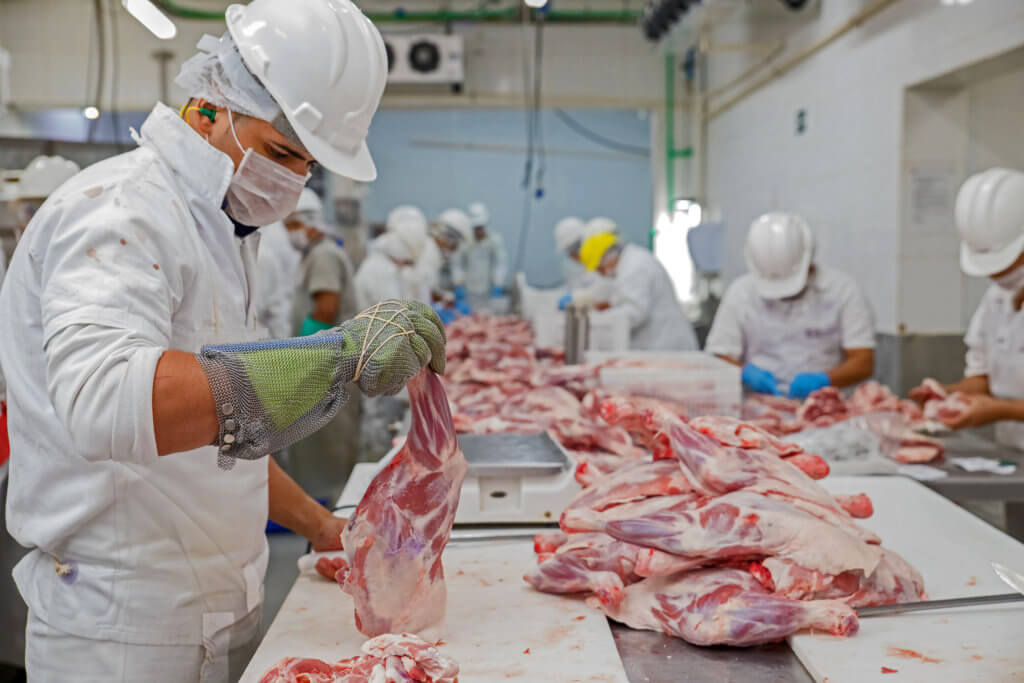COPENHAGEN, Denmark — Potentially deadly drug-resistant “superbugs” could be lurking in nearly half of the meat products sitting in your local supermarket, a new study warns. Researchers in Spain say they discovered multidrug-resistant E. coli strains in 40 percent of chicken, turkey, beef, and pork products for sale in shops across the country.
E. coli strains capable of causing severe infections in people were also “highly” prevalent, according to the results. At the same time, scientists say that antibiotic resistance is reaching “dangerously high” levels around the world. Globally, drug-resistant infections kill an estimated 700,000 people a year. That figure could rise to 10 million by 2050 without an effective defense, according to estimates. The World Health Organization (WHO) also considers antibiotic-resistant bacteria one of the greatest public health threats facing humanity.
Multidrug-resistant bacteria can spread from animals (like livestock) to humans through the food industry. However, data on the levels of antibiotic-resistant bugs detected in food is generally unavailable. The Spanish team designed a series of experiments to accurately measure levels of multidrug-resistant and extraintestinal pathogenic Enterobacteriaceae — which includes Klebsiella pneumoniae, E. coli, and other bacteria that can cause sepsis or urinary tract infections (UTIs).
What’s hiding in the meat department?
Researchers analyzed 100 meat products — including 25 samples of chicken, turkey, beef, and pork, respectively — coming from random supermarkets across Oviedo in 2020. Nearly three in four meat products (73%) contained levels of E. coli that were within food safety limits.
However, almost half (49%) contained multidrug-resistant bacteria or potentially pathogenic strains of E. coli. Out of this group, the team recovered and characterized 82 E. coli isolates. Additionally, they recovered a dozen K. pneumoniae isolates from 10 of the 100 meat products, including seven chicken samples.
Results show 40 of the 100 meat products contained multidrug-resistant E. coli. The highest prevalence of positive ESBL-producing E. coli was lurking in turkey products (68%) and chicken (56%). Study authors say the higher presence of ESBL-producing E. coli strains in poultry in comparison to beef and pork is likely due to differences in the slaughter and production of these meat products. Overall, more than a quarter of the meat products (27%) contained potentially pathogenic extraintestinal E. coli (ExPEC).

The researchers warn that ExPEC possesses genes which allow the germs to cause disease outside of the gastrointestinal tract. Dr. Azucena Mora Gutiérrez adds that ExPEC causes the vast majority of urinary tract infections (UTIs), is a leading cause of sepsis, and is the second-leading cause of neonatal meningitis.
The study finds that one of the meat products contained E. coli harboring the mcr-1 gene, which creates resistance to colistin, an antibiotic of last resort. Doctors use this drug to treat infections caused by bacteria which is resistant to all other antibiotic medications.
Stopping superbugs should start at the farm
“Farm-to-fork interventions must be a priority to protect the consumer. For example, implementation of surveillance lab methods to allow further study of high-risk bacteria (in farm animals and meat) and their evolution due to the latest EU restriction programs on antibiotic use in veterinary medicine,” says Dr. Gutiérrez, from the University of Santiago de Compostela-Lugo, in a media release.
“Strategies at farm level, such as vaccines, to reduce the presence of specific multidrug-resistant and pathogenic bacteria in food-producing animals, which would reduce the meat carriage and consumer risk.”
“The consumer plays a key role in food safety through proper food handling. Advice to consumers includes not breaking the cold chain from the supermarket to home, cooking meat thoroughly, storing it properly in the refrigerator and disinfecting knives, chopping boards and other cooking utensils used to prepare raw meat appropriately to avoid cross-contamination. With these measures, eating meat becomes a pleasure and zero risk,” the researcher concludes.
The team is presenting their findings at the European Congress of Clinical Microbiology and Infectious Diseases in Denmark.
South West News Service writer Stephen Beech contributed to this report.


Sorry,
Just another “Meat bad” story. Not buying it. More Gov disinformation or “FAKE NEWS”
Just curious, but do people cook this meat or just consume it raw?
This finding makes me uncomfortable so I would also like to declare it is fake news. How dare the researcher advise me to cook my meat thoroughly, keep it cold, and disinfect my cooking utensils so that “eating meat becomes a pleasure and risk-free.” Implying that eating the meat I forgot out on the counter last night and cooked in the microwave wasn’t a pleasure! I do what I want!